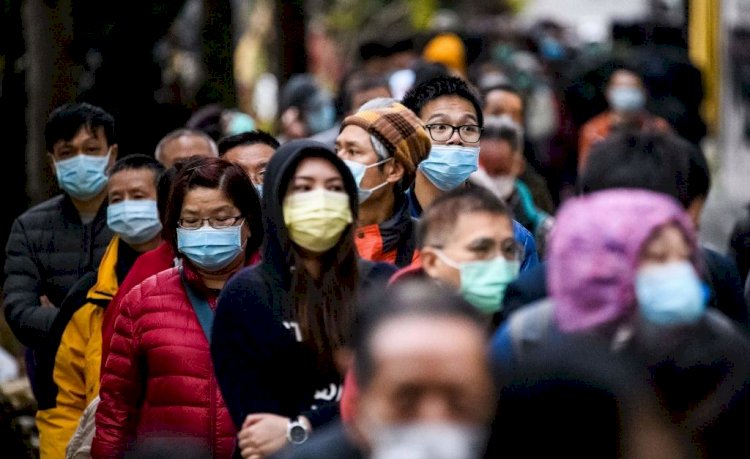WHO Advices People To Wear Face-Masks In Public, As It Revises Previous COVID-19 Guidelines
World Health Organization (WHO) has changed its advice on face masks, saying they should be worn in public where social distancing is not possible to help stop the spread of coronavirus.

The World Health Agency (WHO) has revised its stance on face masks, saying they should be worn in public where social distancing is not possible to help stop the spread of coronavirus.
The global body said new information showed they could provide "a barrier for potentially infectious droplets".
WHO director-general Tedros Adhanom Ghebreyesus said at a thrice-weekly video press conference last week that he wanted to talk about who should wear masks, what materials they should be made of, and when they should be worn.
Tedros said; "I wish to be very clear that the guidance we are publishing today is an update of what we have been saying for months: That masks should only ever be used as part of a comprehensive strategy in the fight against COVID-19."
"In the light of evolving evidence, WHO advises that governments should encourage the general public to wear masks where there is a widespread transmission and physical distancing is difficult, such as on public transport, in shops or other confined or crowded environments."
Based on new academic research, Tedros said the WHO advised people to wear masks consisting of at least three layers of different materials, as outlined in the guidelines, if wearing fabric variants.
He cautioned, however, that "masks on their own will not protect humanity from COVID-19 and the WHO continues to recommend that people who are sick with symptoms of the virus remain at home and consult their health care provider."
The WHO was asked about any guidance for political leaders in the U.S., where it was noted some key leaders at the White House did have masks on at a press conference Friday.
President Donald Trump has also publicly expressed his distaste for wearing masks in front of journalists.
"This guidance is given as guidance to our member states and it must be interpreted and adapted by national authorities accordingly," said WHO's executive director of health emergencies, Dr. Mike Ryan.
"We have no specific advice for any specific grouping at the country level other than certain occupational hazards or other areas like health care, where we believe there's a significant excess risk and then in that situation, we advise very specifically, the type of mass to be used."
READ ALSO:
Nigeria COVID-19 Update: 260 New Cases and 133 Discharged

The Geneva-based U.N. health agency also stressed that masks can increase health risks if people contaminate them by touching them with dirty hands.
"Masks can also create a false sense of security," said Tedros, warning that nothing can replace hand hygiene or physical distancing nor tracking down patients and their social contacts.
The WHO did not advocate mass use of masks in its previous guidance on this topic in early April.
The WHO also noted that sewing masks empower people to do something about the virus while providing a possible source of income.
In the early days of this viral outbreak, when the WHO had not yet declared it a pandemic and we didn't know much about the coronavirus' asymptomatic transmission, doctors and government officials advised only those sick or at least coughing to wear masks to prevent them from infecting others.
Especially with all the panic-buying by the public and hospitals left scrambling for respirators, this advice seemed the most logical.
However, with more and more cases recorded every day, the world of science soon discovered that even if you didn't outwardly exhibit any symptoms you could still be a carrier of the virus and unknowingly pass it onto others. This threw a real curveball to countries' public health strategies.
Turkey, for some time now, has been urging all of its citizens to don a face mask, including making it obligatory to wear on public transport and public spheres such as shops, banks, post offices, etc.
In Britain, the government at first turned down doctors call for more widespread use of masks, but it seems that WHO's latest guidelines seem to have finally convinced them.
The Netherlands and some other European countries also seem quite nonchalant about the use of masks, with few or no people seen wearing them.






































